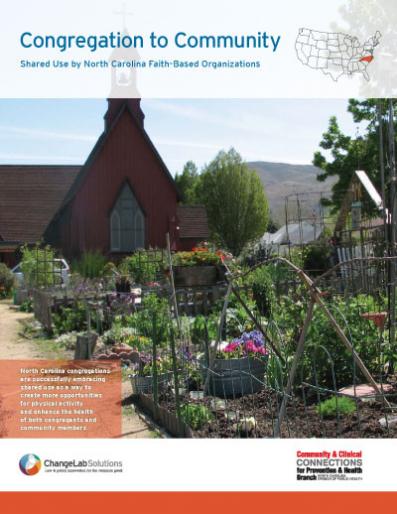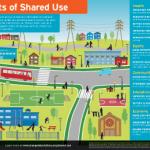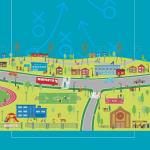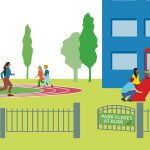Congregation to Community
Shared use by North Carolina faith-based organizations
Over the past few decades, faith-based organizations across the country have been placing greater emphasis on health and wellness.
This reflects a growing recognition of the links between physical, mental, and spiritual health, as well as the integral role that faith-based institutions play in communities. As congregations turn their focus to health and wellness, many recognize the need to direct these efforts to their communities in addition to their members.
Shared use – also called “joint use” and “community use” – traditionally occurs when government entities or other organizations agree to open or broaden access to their facilities for community use. Faith-based organizations can do this too, as they also have recreational facilities that are not in continual use. Just as faith-based congregations often serve their communities through food pantries, after-school programs, meal programs, and other services, many now see shared use of otherwise underused or unused recreational facilities as a promising and cost-effective way to enable both congregants and community members to be healthier.
North Carolina congregations are successfully embracing shared use as a way to create more opportunities for physical activity and enhance the health of both congregants and community members. ChangeLab Solutions, in partnership with the North Carolina Division of Public Health, developed this fact sheet to highlight how faith-based organizations can play an important role in improving the health and well-being of their neighbors by opening up their facilities and programs.




